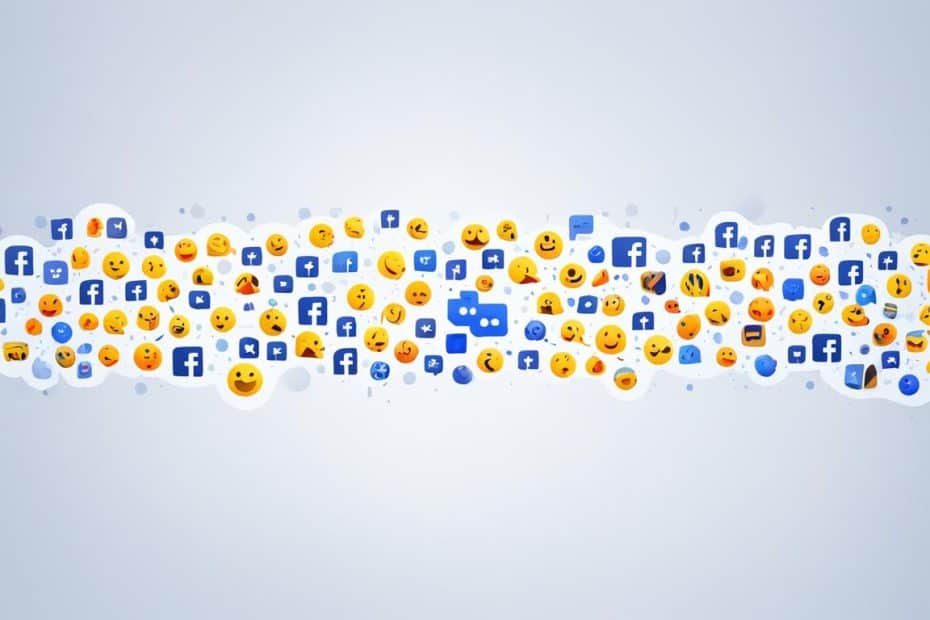On Facebook, many express through Reactions but wish for more. We look deeper into Likes and Loves on the platform. This helps us see how they affect us and what we see.
Facebook made Reactions simple yet rich. Like rules, but Love adds more emotion. Studying these parts shows us their power and why they’re popular.
Key Takeaways
- Understanding the strategic use of Facebook Reactions enhances insights into user engagement.
- Exploring the Likes and Loves reveals their distinctive impacts on content visibility.
- The Like button continues to be an efficient tool for simple and effective user interaction.
- The addition of the Love reaction enriches the emotional expressiveness available to users.
- Analyzing these Reactions can offer deeper insights into Facebook’s algorithmic content promotion.
Understanding Facebook’s Like and Reaction System
The Facebook Like button changed how we interact online. It started as a simple way to show you liked something. But it grew into many ways to react, showing more than just a like. This change showed Facebook listens to what users want in their communication tools.
The Evolution of Facebook’s Like Button
The Facebook Like button began in 2009. It let people quickly share that they liked something. As it changed and allowed for more reactions, it became a way to see what was popular. It helped shape what people saw on their News Feed.
How Reactions Influence News Feed Content
People wanted more ways to express themselves. So in 2015, Facebook made the Reaction system. Now, you can show more emotions like love, laughter, or being sad. This changed which posts you see, based on the reactions they get.
Here are how reactions changed Facebook engagement over the years:
| Year | Likes | Total Reactions (Including Likes) | % Increase in Engagement |
|---|---|---|---|
| 2015 | 2 Billion | 2.2 Billion | 10% |
| 2016 | 2.3 Billion | 2.8 Billion | 21% |
| 2017 | 2.5 Billion | 3.4 Billion | 36% |
| 2018 | 2.7 Billion | 4.1 Billion | 52% |
The Psychology Behind Facebook Interactions
Looking into the psychology of Facebook interactions shows how important the emotional weight of Reactions and Likes is. They affect how we act online and connect.
The Emotional Weight of Reactions vs. Likes
Reactions on Facebook, like ‘Love’ or ‘Sad’, let us show more feelings than a simple Like does. This variety makes us engage more deeply with what we see. It isn’t just about the kind of response but also about how deeply it makes us react.
The Universal Appeal of Facebook’s Chosen Emojis
Facebook picked chosen emojis that everyone understands, no matter their culture. These emojis are like an international language that makes sharing emotions easier for everyone.

The Reason Behind Limited Negative Feedback Options
Facebook doesn’t have many ways to show if something makes us feel bad. This is on purpose, to keep things positive. The ‘Sad’ and ‘Angry’ reactions are there, but sparingly used, to avoid spreading negativity.
Facebook’s details, from how we show our feelings to the emojis we use, are all about making the site a positive place for everyone. It’s designed to bring people together, no matter where they are from.
Why Can I Only Like on Facebook and Not Love?
Many users wonder why we can only Like on Facebook, and not show “Love.” The reason lies in Facebook’s design and how we connect with each other there. Let’s explore the thinking behind this choice.

Facebook limits us mostly to “Like” because it keeps things simple. This way of reacting is clear to everyone, no matter their background. Also, liking something is a light way to show agreement, without much emotional risk or misunderstanding.
- Simplifies emotional expressions
- Minimizes the potential for user confusion
- Ensures clear, universal interaction across diverse user bases
Looking closely, Facebook values easy, straightforward user interaction over a more complex emotional spectrum. This choice helps keep things simple, not just for users, but also for those behind the scenes.
| Feature | Provided by Facebook | Community Impact |
|---|---|---|
| Like Button | Yes | Universal understanding and usage |
| Love Reaction | Limited to response format | More emotionally expressive, less universally applicable |
| Other Reactions | Yes | Allows nuanced responses, but used less frequently |
In Facebook, Like on Facebook is easy and quick to use. But not being able to “love” shows something very important. Social media is more than just tech. It’s deeply connected to how we interact and feel, with every feature changing the vibe of the place.
Privacy Concerns and the Implications of Facebook Reactions
Facebook Reactions are now a big part of how we interact online. But, they come with big privacy concerns. Every time you React with a Like, Love, Haha, or Sad, Facebook learns something about you. This helps them show you ads that you might like more.
Adding Reactions to Facebook lets it know you better. This means ads and what you might see can change based on your feelings. People worry this could be used in ways that are not clear to us, which might not be good for our privacy.
While Reactions make it fun to share all kinds of feelings, we must be careful. We should think about what we share online. This is key for keeping our data safe. It’s also important for making sure we are not shown things that might not be good for us. Talking about these issues and making rules are very important as the web keeps growing.
FAQ
What are Facebook Reactions?
How do Reactions influence content visibility on Facebook?
Why did Facebook introduce Reactions?
How do Reactions impact user engagement on Facebook?
Why does Facebook only allow users to “Like” and not express love?
What is the emotional weight of Reactions compared to Likes on Facebook?
How did Facebook choose the emojis for Reactions?
Why are there limited options for negative feedback on Facebook?
What are the privacy concerns associated with Facebook Reactions?
What are the implications of Facebook Reactions on user data?
How do Facebook Reactions impact targeted advertising?
Source Links
- https://www.telegraph.co.uk/technology/2017/02/28/should-love-instead-like-facebook-posts-really-matter/
- https://www.mlive.com/news/2016/02/how_to_use_the_new_facebook_li.html
- https://www.thesun.co.uk/news/2975550/facebook-says-youve-got-to-love-posts-rather-than-just-liking-them-for-this-one-reason/

